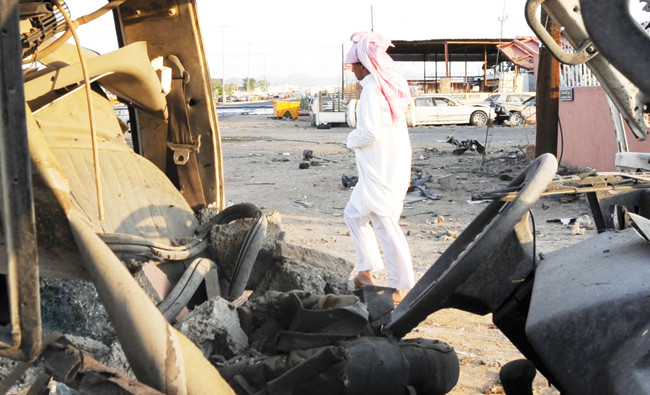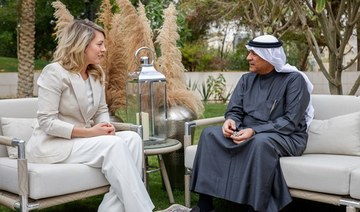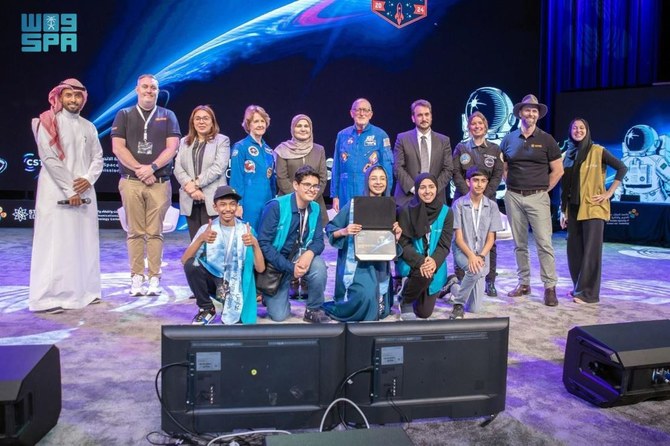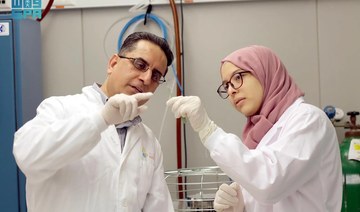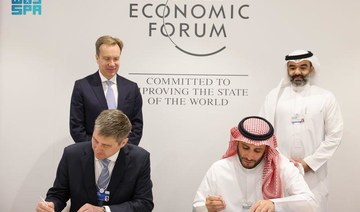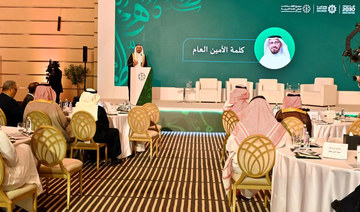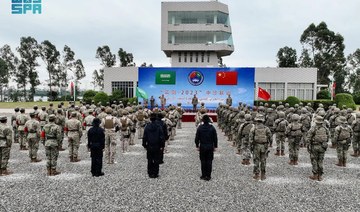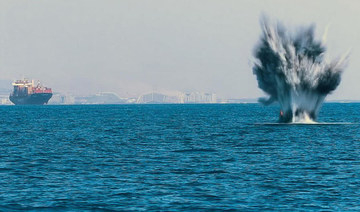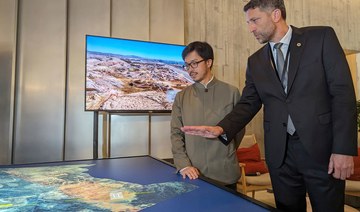JEDDAH: The Saudi Royal Air Defense Force intercepted on Friday morning a ballistic missile headed toward Najran.
The missile was spotted at 00:39 Saudi time and was said to be fired by the Houthi militia in Yemen.
The Houthis deliberately fired the missile toward Najran, targeting civilian and populated areas, coalition spokesman Turki Al-Maliki said in a statement released by the official Saudi Press Agency.
Debris from the missile landed in residential areas of Najran without causing casualties, Al-Maliki said.
He added: “This hostile act carried out by the Iranian Houthi militia proves that the Iranian regime is still providing the terrorist Houthi armed militia with qualitative capabilities, in flagrant defiance of UN Security Council Resolution 2216 and 2231, with the main objective of threatening Saudi Arabian, regional and international security.”
He concluded: “Launching ballistic missiles at densely populated civilian areas is a direct breach of the principles of the international humanitarian law.”
The Houthi militias claimed the attack via their news outlet Al-Masirah, saying the “Badr 1” missile had targeted Najran.
The Iranian-backed Houthis have fired a number of missiles over the border at Saudi cities, including the capital, Riyadh, in breach of international laws banning the targeting of civilian areas.
On Thursday, Saudi forces also intercepted a ballistic missile fired by the Houthi militia toward the border province of Jazan.
The ballistic missile was launched from the Houthi strong-hold province of Saada.
And on Wednesday, UAE coalition forces intercepted two boats in the Red Sea being used by the Houthis to target a tanker.
Saudi Arabia has since March 2015 led a coalition of Arab states fighting to roll back the Houthis in Yemen and restore its neighbor’s internationally recognized government to power.
So far, the Houthis have launched over 130 missiles at Saudi cities and installations.
Arab coalition allows aid group to enter Yemen
For the second time in less than a month, the Saudi-led Arab coalition has allowed Al-Balsam International Organization to enter Yemen to provide needy patients with free medical services, in coordination with the country’s legitimate government.
A medical team from Al-Balsam will leave for Yemen in the coming days, the coalition said.
Earlier in May, the organization successfully treated heart patients in the country, performing surgeries including open heart surgery and catheterization.
This is part of ongoing coalition efforts to facilitate the entry of international humanitarian organizations into Yemen to alleviate suffering caused by Iran-backed Houthi militias, which continue to destroy and damage infrastructure and health facilities, and loot humanitarian aid to blackmail Yemenis.
Earlier, Yemen’s Minister of Public Health and Population Nasir Baoum expressed gratitude to Saudi Arabia for its continuous support for Yemen, and the medical team from Al-Balsam International Organization for their great humanitarian work in the country.




